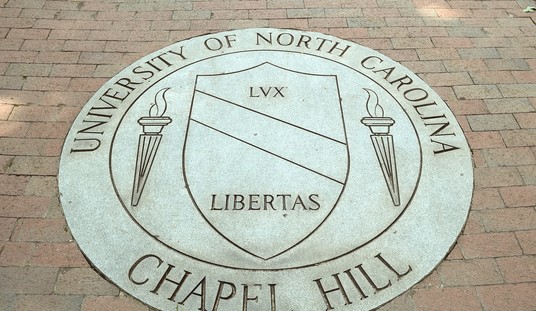In the last few hours two news stories have developed in parallel but with strikingly contrasting plotlines. The first was the re-election by a convincing margin of FIFA president “Sepp” Blatter. The second was the indictment for making false statements in connection with blackmail, of former speaker of the House Dennis Hastert.
If these were television shows, a reviewer juxtaposing them might be tempted to conclude that the joint moral of the stories isn’t that “crime doesn’t pay”, but that crime should pay enough to provide for its own defense. For in the one relative “innocence” — if such a term exists — is no protection against punishment. The other show proves the only protection against payback is power. Innocence and guilty are empty terms. It is the power to hire lawyers, or intimidate your pursuers that really matters.
Thus the surest protection against retribution isn’t a lack of guilt but the surfeit of it. If one plans on being a crooked sports association president the smart strategy is to go all the way. For it doesn’t pay to corrupt only some parts of the system, leaving the honest bits to turn against you. The only logical course is to corrupt all of it. Nuke its governance from orbit. It’s the only way.
Similarly, if one were running for president one should not depend upon innocence for defense. Better that all your supporters wear the badges; so that you may be the arbiter of innocence or guilt. Moreover power should not be concealed but broadcast. It was Nicolo Machiavelli who famously observed that ostentation in cruelty was as salutary as acts of public mercy. Both were exhibitions of power. For men, he believed are a sorry lot who respect only power; and the key to their hearts is the stiff wire of fear.
Upon this a question arises: whether it be better to be loved than feared or feared than loved? It may be answered that one should wish to be both, but, because it is difficult to unite them in one person, is much safer to be feared than loved, when, of the two, either must be dispensed with. Because this is to be asserted in general of men, that they are ungrateful, fickle, false, cowardly, covetous, and as long as you succeed they are yours entirely; they will offer you their blood, property, life and children, as is said above, when the need is far distant; but when it approaches they turn against you. And that prince who, relying entirely on their promises, has neglected other precautions, is ruined; because friendships that are obtained by payments, and not by greatness or nobility of mind, may indeed be earned, but they are not secured, and in time of need cannot be relied upon; and men have less scruple in offending one who is beloved than one who is feared, for love is preserved by the link of obligation which, owing to the baseness of men, is broken at every opportunity for their advantage; but fear preserves you by a dread of punishment which never fails.
There was, however, the one question with Machiavelli’s much admired maxim could not answer. If power and cruelty were the cornerstones of power, how much was enough? What were the limits of cruelty if it were to remain ultimately beneficial — at least remain in service to the prince? That reductio ad absurdum has proved remarkably difficult to determine in history. So far as we know, in the power game, more is always better.
There is an extraordinary scene in the movie Downfall where a cornered Hitler realizes that the Third Reich is going to be defeated. Reflecting on his failure he tells his generals that Stalin won because his generals feared the Red Czar more than they feared death itself, and hence fulfilled his opponent’s will unflinchingly.
Our generals are the scum of the German people! [throws pencil on his desk] Not a shred of honour! They call themselves generals. Years at military academy just to learn how to hold a knife and fork! For years, the military has hindered my plans! They’ve put every kind of obstacle in my way! What I should have done… was liquidate all the high-ranking officers, as Stalin did!
So for Hitler the lesson of the Second World War was that he was too nice a guy. His conclusion is that there are no limits to the Machiavellian doctrine, not even the ‘obvious’ ones. No “obvious” and no “limits”. In that world you must simply “out-bad” your enemy or come second in the contest of ruthlessness. The problem is that the “devil” may be in the game and it’s hard to out-bad him.
Perhaps the most interesting counter-thinking on the subject of evil is in the Old Testament. The Jews hit upon the idea that evil was a quantity and hence the intertemporal transfer of negative consequences existed like any inheritance. A sinner could hand down a negative estate. In Exodus, we read: “the Lord … forgives iniquity, transgression and sin; yet He will by no means leave the guilty unpunished, visiting the iniquity of fathers on the children and on the grandchildren to the third and fourth generations.”
Today we have stopped talking about sin but moderns still understand the concept of a negative estate under the heading “national debt” and “kicking the can down the road”. In fact the government has a charming system called the Medicaid Estate Recovery Program, ” a process initiated by U.S. state governments for recovering payments they made under the Medicaid program to program beneficiaries. The government recovers the sum of payments from the estate at the time of death of the program beneficiary.”
Karma is hard to extinguish. Hitler could shoot himself through the head but everyone else in the bunker still had to face the vengeful Red Army outside. “Sepp” Blatter may have dodged the bullet, but who can doubt that FIFA must sooner or later fall? In the same way, an American politician may progress to her throne, yet do so much damage in the process that she eventually reduces it to a toilet.
In Exodus, guilt behaved like credit card debt. If you didn’t pay it off today, it would come back with interest at the end of the month. There is some evidence that this actually happens. Thomas Friedman of the New York Times, surveying the Middle East, says things have never been so bad. “The tribal, fundamentalist mindset has triumphed, and there’s nothing for the U.S. to do about it.”
The fighting has laid bare just how much the last 60 years of predatory leadership in that region failed at human development and citizenship building. The whole Arab world package, with its artificially straight-line borders, was held together by oil and brute force. In the wreckage, people are falling back on the only identities they think might keep them safe: tribe and sect. It is a measure of how far things have unraveled that many Iraqi Sunnis prefer the lunatic Islamic State, or ISIS, than to fight and die for a pro-Iranian Shiite-led government in Baghdad. I have never seen it this bad. The Middle East analyst Simon Henderson captured the disintegration well in an essay in The Wall Street Journal in March, writing, “The violent chaos in Yemen isn’t orderly enough to merit being called a civil war.”
If there was ever a place where Machiavelli’s maxims had free application it was the Middle East. But as Exodus predicted, while the debt to justice may be postponed it is never extinguished by delay. All that cruelty, tyranny and injustice simply went on the card. Today the Repo Man of History — in case you don’t like the word “God” — is there to collect.
Because evil has consequences which cannot be avoided forever, the Old Testament advises the guilty to pray for punishment, if nothing else to avoid the interest charges that will accrue. In Job we read, “if I sin, then You would take note of me, and would not acquit me of my guilt.” Better to face it now than later, when it has grown in silence — as perhaps Hastert’s did — to a monstrous tumor.
But in Dostoevsky there is more to the acceptance of guilt than mere interest avoidance. The great author argues that men should embrace their guilt and punishment because it is necessary to redemption.
“‘So perhaps I’m not guilty at all’ — this is what he [the criminal] thinks in the final analysis. You put that notion in your head yourselves.” There is no one more unfortunate, Dostoevsky contends, than a criminal who has ceased to consider himself a criminal, for he is no more than a “beast”.
We occasionally still see this in the relief some criminals feel when apprehended, at the moment when they face the truth about themselves they’ve long been trying to escape. But we’ve ceased to remember what it means. As a society we’ve become like Dostoevsky’s beast. Not only do we think, “perhaps I’m not guilty at all”, we’ve proceeded directly to the more general “perhaps there is no guilt at all.”
If one really believes that then a message of congratulations to Mr. Blatter is in order. It’s his world now and we just live in it. But maybe throwing that bill away really doesn’t mean another one won’t come in the mail next month. Well if it does, we’ll just toss that one too, for now it’s time to get some beer down at the corner. Tweet the world if you need something.
Recently purchased by readers:
Once an Arafat Man, The True Story of How a PLO Sniper Found a New Life
The Next 100 Years: A Forecast for the 21st Century
The Next Decade, Empire and Republic in a Changing World
Charlie’s Place, The Saga of an American Frontier Homestead [Kindle Edition]
The Atlantic Wall (1), France (Fortress) [Kindle Edition]
The Devil’s Garden, Rommel’s Desperate Defense of Omaha Beach on D-Day [Kindle Edition]
All in One Tool Ruger Mark Series Pistols Tool/stand
Possibly worth buying:
Ultimate Clip Loader UCL22 50 Round Speed Loader
The Dead and Those About to Die: D-Day: The Big Red One at Omaha Beach [Kindle Edition]
The Revenge of Geography, What the Map Tells Us About Coming Conflicts and the Battle Against Fate
The world in 2050, Four Forces Shaping Civilization’s Northern Future
Did you know that you can purchase some of these books and pamphlets by Richard Fernandez and share them with you friends? They will receive a link in their email and it will automatically give them access to a Kindle reader on their smartphone, computer or even as a web-readable document.
The War of the Words for $3.99, Understanding the crisis of the early 21st century in terms of information corruption in the financial, security and political spheres
Rebranding Christianity for $3.99, or why the truth shall make you free
The Three Conjectures at Amazon Kindle for $1.99, reflections on terrorism and the nuclear age
Storming the Castle at Amazon Kindle for $3.99, why government should get small
No Way In at Amazon Kindle $8.95, print $9.99. Fiction. A flight into peril, flashbacks to underground action.
Storm Over the South China Sea $0.99, how China is restarting history in the Pacific
Tip Jar or Subscribe or Unsubscribe to the Belmont Club









Join the conversation as a VIP Member